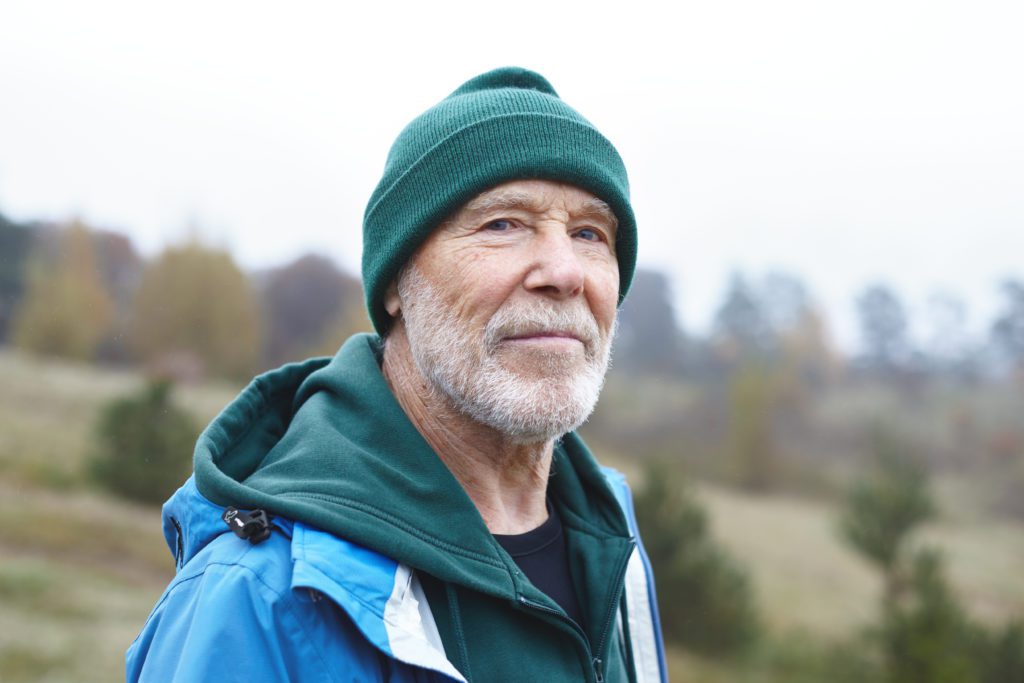While feeling the “winter blues” or having an occasional bad day is a normal part of life, feeling depressed all of the time is not, nor is it an inevitable part of aging. Experiencing sadness for a short period of time, such as after the loss of a loved one, is expected. But if strong feelings of sadness or hopelessness don’t seem to go away, you may be facing clinical depression. It’s important to be able to identify signs of clinical depression and to recognize that older adults may be more susceptible. Depression is estimated to affect 1%-5% of older adults living in the general community, but that percentage increases sharply to 11.5% for those who are hospitalized and to 13.5% for those who require home health care.
The unique stressors that older adults face leave them with a higher risk of developing depression. Chronic conditions and pain top the list of risk factors for depression, and according to the CDC, roughly 80% of older adults have at least one chronic health condition. Other risk factors causing depression include decreased functional ability, reduced mobility, financial issues related to retirement, loneliness, isolation, and a reduced sense of purpose. Depression can be harder to detect in older adults, as some symptoms may mirror others of the aging process. For example, sleeping more may be a sign of a mental health issue instead of just a part of “old age”. Also, cognitive changes that are often attributed to dementia may actually be a byproduct of depression.
Symptoms of Depression
If you or an older adult in your life have begun displaying symptoms of depression, it’s important not to ignore the warning signs. Some signs and symptoms to look for include:
-Apathy, or a sense of not caring about anything
-Irritability
-Fatigue and low energy
-Loss of interest in activities once enjoyed
-Insomnia or oversleeping
-A sense of hopelessness
-Trouble concentrating
-Overeating or a decrease in appetite
-Persistent sadness
Prevent Depression
Many people erroneously believe that seeking treatment for depression is a sign of weakness or failure, but it’s important to understand that depression is a medical condition and not a choice. Just as you’d treat heart issues or diabetes, clinical depression requires medical attention. Let your family, friends, or doctor know right away if you’re experiencing depression symptoms. There are several avenues of treatment that can be explored, such as counseling and medication. Once your depression is properly treated, you can quickly regain your quality of life and even cognitive abilities that may have been lost.
If you are seeking preventative measures against depression, there are many ways to be proactive. Research has found that loneliness and isolation both contribute to depression, and older adults who are shut-in, live alone, or have decreased mobility are at greater risk. Maintaining connections is crucial for well-being. Older adults can benefit from regular visits from caregivers and/or family members. Being part of a community, such as a club, community group, or church, can also ward off isolation and loneliness. Older adults who live in a retirement community, assisted living facility, or skilled nursing center have the benefit of being surrounded by others and having regular opportunities for connection. At Snyder Village, which is a life plan community offering retirement living, assisted living, and skilled nursing, residents regularly connect with one another by eating meals together, engaging in activities, and being involved in interest groups such as Bible studies or exercise classes.
Taking care of yourself physically can also help keep depressive symptoms at bay. Older adults have unique nutritional needs, so eating a balanced, healthy diet is an important part of maintaining energy and avoiding medical conditions. Getting plenty of rest is also vital to physical and mental health. Older adults should aim for seven to nine hours of sleep nightly. Staying active by exercising is another proven way to avoid depression. Exercise doesn’t have to be vigorous. Regular walks in nature, chair exercises, and gentle Tai Chi are all great options to get your body moving. Group exercise, like the chair exercise classes that happen regularly at Snyder Village, has the double advantage of providing the health benefits of physical activity and the mental benefit of social connection.
One of the best ways to avoid depression and loneliness is to find a sense of purpose. There are many ways in which you or a loved one can make a difference and give back to others. Volunteering at a local food bank or animal shelter, helping grandkids with schoolwork, or sharing musical talent with others are just a few ways to make a difference. Residents at Snyder Village enjoy volunteering around the campus and offering their services to help others. Many volunteers by distributing the community newsletter, delivering meals, helping with activities, or gardening to provide vegetables or flowers that the community can enjoy. Others lead Bible studies or take part in chapel services to connect with each other and to a higher purpose.
If you’re feeling symptoms of depression, know that you are not alone, and help is available. Growing older brings its unique challenges, but depression doesn’t have to be one of them.
Snyder Village in Metamora is a Life Plan Community that offers independent living, assisted living, memory care programs, skilled nursing care, therapy, and home care. For more information, call (309) 367-4300 or visit www.snydervillage.com.





